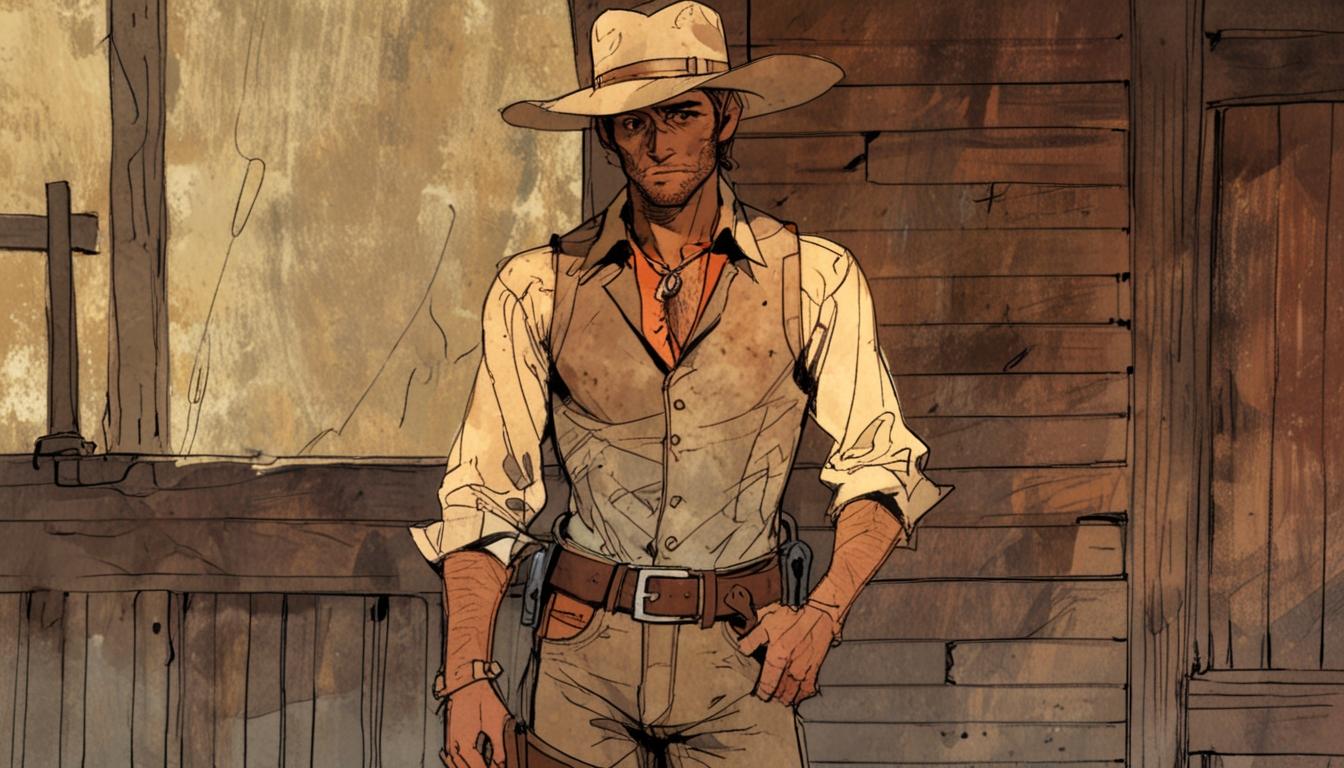In a striking reinterpretation of Shakespeare’s classic tale, "Romeo and Juliet," director Sean Holmes has transported the story to the Wild West, reviving the iconic feud between the Montagues and Capulets amidst a backdrop of cowboy boots, gingham, and Stetsons. The production, as reported by The Guardian, plays with the high concept that injects a fresh energy into the narrative, even if it risks overshadowing the text itself.
The characters have been reimagined fittingly for their new setting. Romeo, played by Rawaed Asde, and his friends are clad in holsters, while Tybalt, portrayed by Calum Callaghan, embodies the essence of a lone ranger. The production’s set, designed by Paul Wills, features a distinctive clapboard design reminiscent of Shaker simplicity, with moving saloon-bar doors and an upstairs window that plays host to a live band featuring harmonica and banjo players.
A notable addition to this adaptation is its comedic elements, with many of the lines delivered with a light-hearted tone. Jamie-Rose Monk’s portrayal of Juliet’s nurse evokes the vivacity of a rambunctious Wife of Bath, while Paris, played by Joe Reynolds, exhibits the antics of a musical hall clown. Benvolio, portrayed by Roman Asde, adds a Chaplinesque touch with his hat, further enhancing the production's whimsical charm.
Juliet, embodied by Lola Shalam, channels the spirit of Calamity Jane while adopting the mannerisms of a bored teenager. Her portrayal blends a humorous gold with a palpable inner strength, proving effective as the narrative unfolds. The production aims to captivate younger audiences without alienating older viewers, maintaining the integrity of Shakespeare's text while situating it seamlessly against the rugged landscape of the frontier. The masked ball, infused with lively line-dancing, and the duel scenes where daggers are drawn, integrate well into the play's structure.
However, the adaptation is not without its challenges. Some performances suffer from a lack of nuance, with actors occasionally declaiming their lines rather than delivering them with the subtleties Shakespeare intended. Asde’s intensity as Romeo is commendable; however, his consistently forceful delivery can detract from the emotional resonance of his character. Mercutio's portrayal, while animated and entertaining, often leans towards over-exaggeration.
The runtime also strayed from the traditional two hours, nearing three, which some may find overextended. Yet, even through its lengthy performance, the final hour stands out in its execution. Eerily, the dead rise to deliver poignant messages; Mercutio's ghost conveys the tragic news of Juliet’s demise to Romeo, shifting the tone from earlier levity to stark tragedy.
In this innovative production, Holmes skillfully marries the high concept of a Western setting with competent execution, resulting in an adaptation of "Romeo and Juliet" that, despite its imperfections, offers a unique and engaging theatrical experience.
Source: Noah Wire Services
